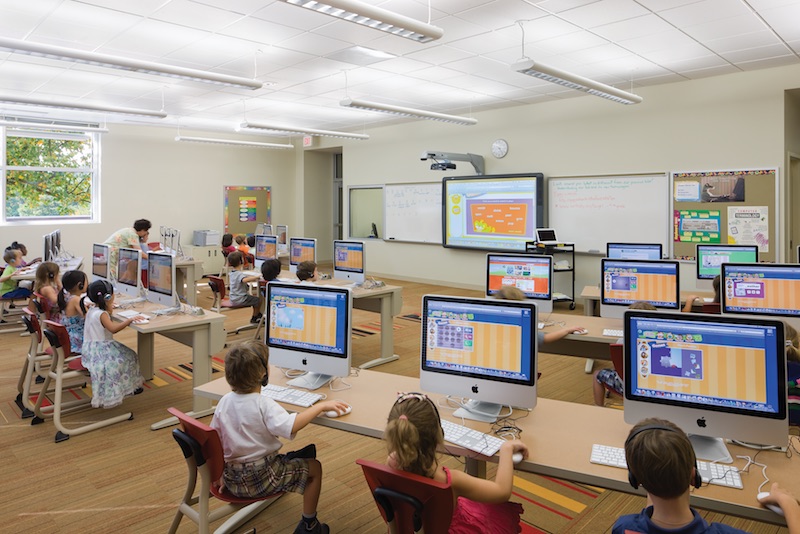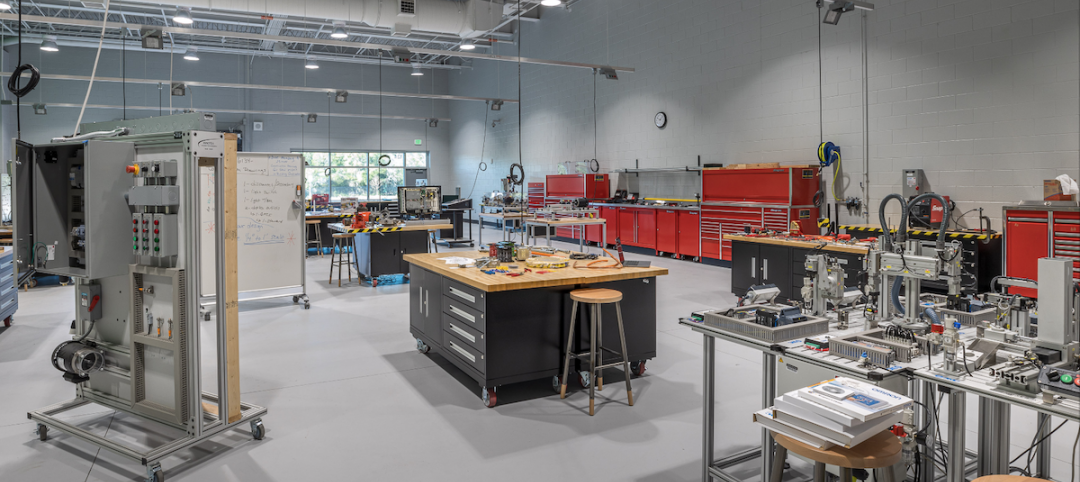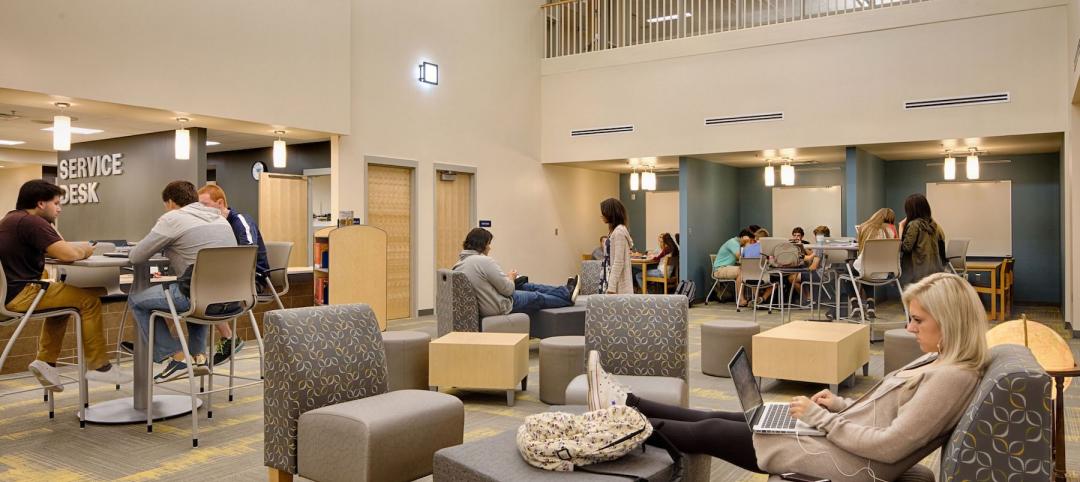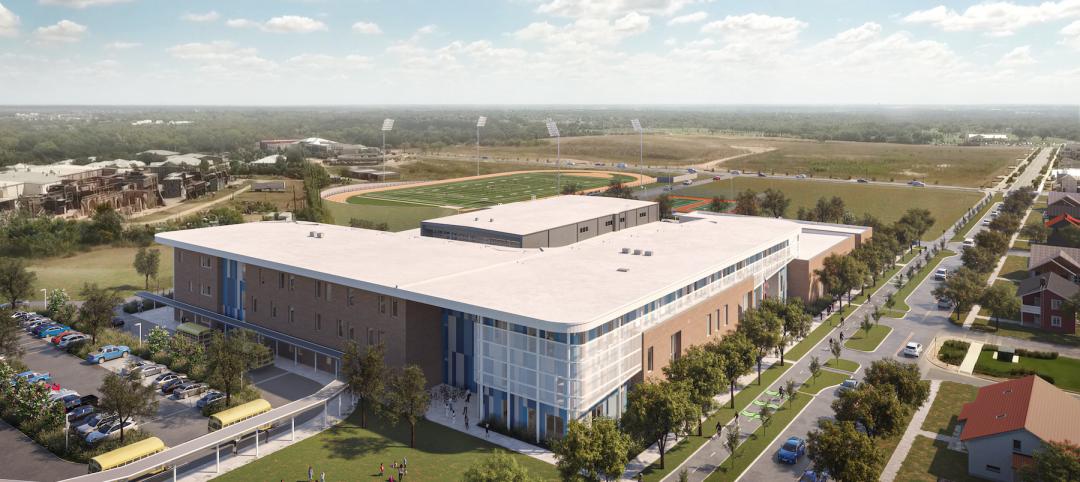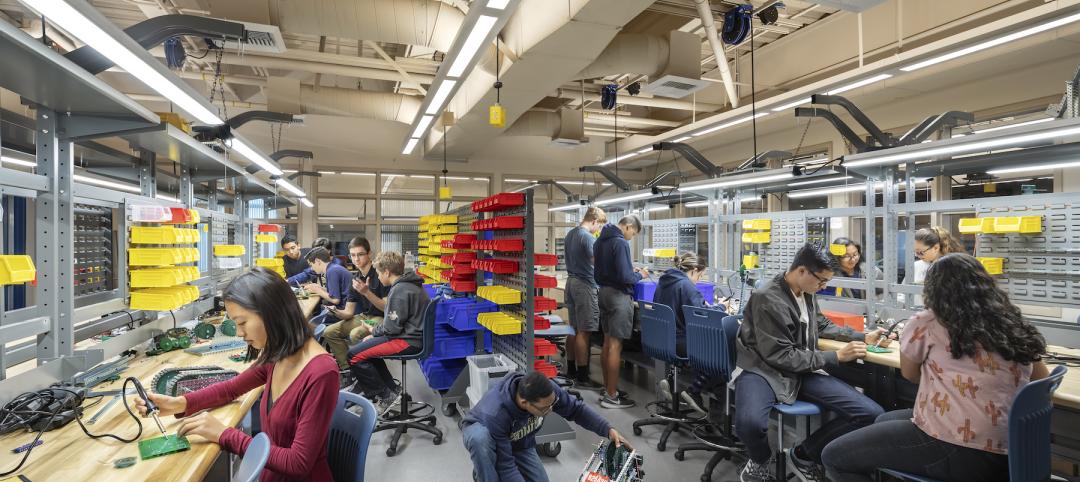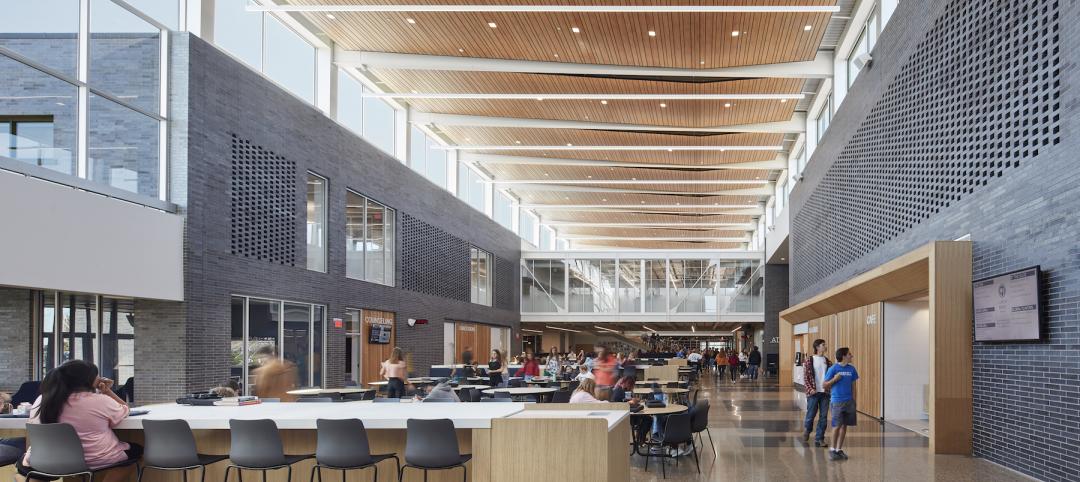As school districts explore new ways to reach the broadest number of students, myriad teaching methods—some with one foot in psychology and the other in commerce— are seeping into the educational bloodstream. As a result, AEC teams are being asked to design and build schools with enough flexibility to adapt to changing pedagogies.
Architect Richard Berliner singles out a K-8 charter school in Lancaster, Calif., that “doesn’t have a single traditional classroom.” It follows the teaching blueprint of ILead—for International Leadership and Entrepreneurial Development, inspired by Stephen Covey’s book and program “The Leader in Me.” At USC Hybrid High School—a personalized college-prep program developed by the charter management organization Ednovate and affiliated with the University of Southern California—teachers weave yearlong themes (such as “Know Yourself ” or “Know Your World”) into their students’ coursework.
Last September, 10 campuses nationwide (from among 10,000 applicants) received $10 million each to create “a high school of the future” through XQ: The Super School Project, an organization of educators and engineers launched last year by Laurene Power Jobs, the widow of Apple cofounder Steve Jobs.
Like other XQs, Vista High School, in the North San Diego area, has a year to implement its plan and five years to incorporate XQ’s program. The details of what this will mean for the physical school are still being worked out. Right now, some Vista classes are conducted in modular trailers. But the campus has 50 acres, “so we have lots of room to maneuver,” says Ashley Johnson, Architectural Designer at Berliner Architects, which is designing Vista’s XQ campus. The firm envisions a high school with dedicated classrooms interspersed with rings of flexible and common spaces.
The high school will retain its Personalized Learning Academy, a school within a school that replaces conventional classes with individualized coursework and online curricula. The school has contracted with software developers to design an app that will chart students’ progress in mastering skills and completing projects.
Related Stories
K-12 Schools | Apr 1, 2022
Charleston County’s award-winning career and technical education high school
BD+C Executive Editor Rob Cassidy talks with the team behind the award-winning Cooper River Center for Advanced Studies, a Career|Technical Education high school in Charleston County, S.C.
Projects | Mar 31, 2022
Tech school designed to prepare students for high-wage, high-skill careers
In Wesley Chapel, Fla., a half-hour north of Tampa, Kirkland Ranch Academy of Innovation (KRAI) is “not going to look like anything you’ve ever seen before,” Kim Moore, assistant superintendent at Pasco County Schools, said in a statement.
K-12 Schools | Mar 29, 2022
A graceful design opens Pennsylvania’s Springfield High School to its community
Multifunctional spaces enhance student collaboration.
K-12 Schools | Mar 8, 2022
Design delivers new media messages for schools
Media centers are no longer physically confined to one room.
Resiliency | Feb 15, 2022
Design strategies for resilient buildings
LEO A DALY's National Director of Engineering Kim Cowman takes a building-level look at resilient design.
Coronavirus | Jan 20, 2022
Advances and challenges in improving indoor air quality in commercial buildings
Michael Dreidger, CEO of IAQ tech startup Airsset speaks with BD+C's John Caulfield about how building owners and property managers can improve their buildings' air quality.
K-12 Schools | Jan 4, 2022
Forest Edge Elementary School becomes the largest net zero verified education project in the U.S.
Bray Architects designed the project.
K-12 Schools | Dec 27, 2021
A ‘new urbanist’ middle school takes shape in Austin
Design-build delivery, still rare for Texas school construction, fit expeditiously for this project.
K-12 Schools | Dec 10, 2021
Trends in K-12 school design, with Dan Boggio and Melissa Turnbaugh of PBK
Dan Boggio and Melissa Turnbaugh of PBK, the largest K-12 design firm in the U.S., discuss the favorable market conditions and the latest trends in K-12 school design with BD+C's Rob Cassidy.
Giants 400 | Nov 18, 2021
2021 K-12 School Sector Giants: Top architecture, engineering, and construction firms in the U.S. K-12 school facilities sector
PBK, Gilbane, AECOM, and DLR Group head BD+C's rankings of the nation's largest K-12 school facilities sector architecture, engineering, and construction firms, as reported in the 2021 Giants 400 Report.


